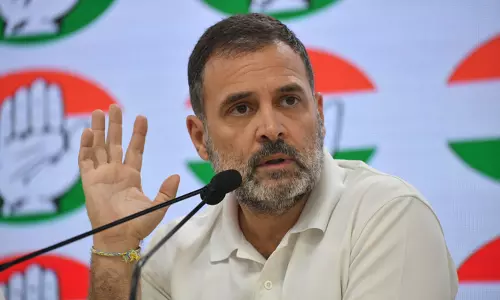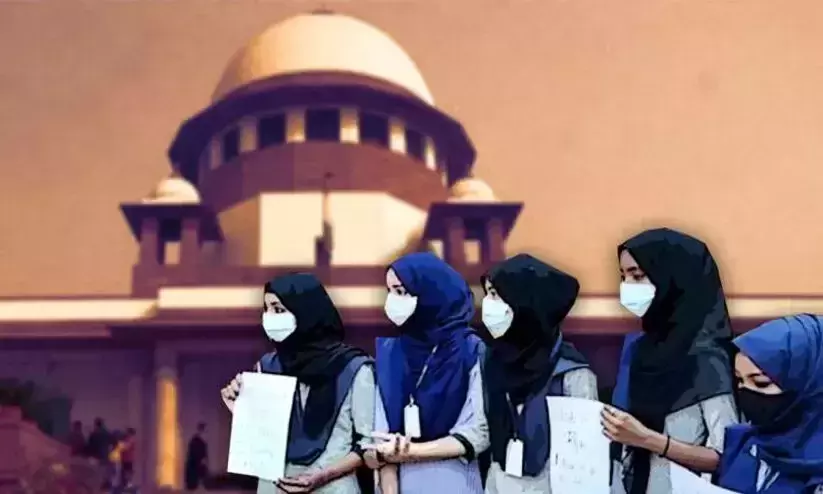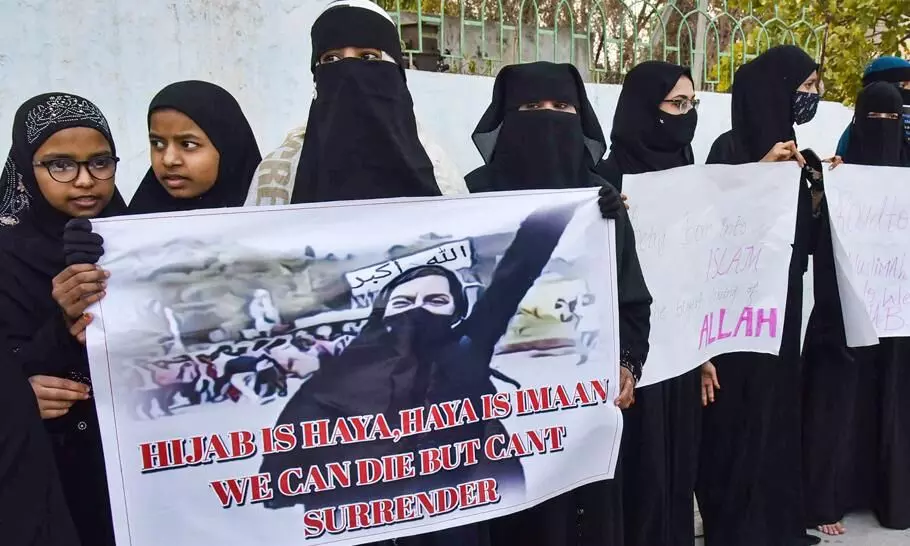
Hijab case enters a new phase
text_fieldsA two-judge bench of the Supreme Court has issued conflicting rulings in response to petitions challenging the hijab ban in Karnataka educational institutions prompting the matter to be referred to the Chief Justice and a larger bench as per precedent. The Karnataka government issued an order banning the wearing of the hijab with uniforms in educational institutions on February 5 of this year after eight Muslim girls in classes 11 and 12 at Udupi Govt Pre-University Women's College were expelled for wearing a headscarf. On March 15, the Karnataka High Court dismissed petitions filed by Muslim students contesting this and upheld all the restrictions imposed on the hijab by the Karnataka government order. The students then approached the Supreme Court. After a detailed hearing, the two-judge bench issued a split verdict. Justice Sudhanshu Dhulia quashed the Karnataka High Court verdict while Justice Hemant Gupta examined the issue through 11 questions and came to the conclusion that the answers to all of them were in favour of the hijab ban and upheld the High Court verdict. The Supreme Court heard arguments on 11 appeals from September 5 to September 22 before delivering this verdict.
On the one hand, there is the right to education and the right to dress in accordance with a religion's dictates and on the other there is the claim that it violates the rules and uniformity of schools and colleges when it is permitted. The court had to decide on the positions between the two sides. One contention of the petitioners was that the decision of the High Court eliminated the right to freedom of expression under Article 19(1)(a) of the Constitution and that dressing in accordance with religious orders was a legitimate practice of faith. Additionally, they argued that the Karnataka verdict violated the constitutional right to privacy guaranteed by Article 21. They brought to the Court's attention the fact that the Karnataka High Court did not grant reasonable accommodation as required by Articles 19 and 21 of the Constitution and that wearing a piece of clothing on one's head of the same colour as the uniform did not violate public order.
Justice Hemant Gupta's main argument in dismissing the petition after breaking the topic down into eleven questions was that the hijab is not an essential Islamic obligation. The Karnataka order, according to the statement, can be considered a reasonable measure for institutional discipline and equity and does not restrict the right to education. Justice Sudhanshu Dhulia emphasised that it is inappropriate to even determine if the hijab is a fundamental element of a religion. The question of whether girls' education is being improved is the most crucial problem according to him. Additionally, he cited Articles 14 and 19 of the Constitution, emphasising the necessity to safeguard people's right to choose. The case in fact arose in the context of the BJP government in Karnataka taking a strong stance against the headscarf in the wake of the Sangh Parivar protest against the hijab in Udupi College. While it is clear that Muslim women have adopted the headscarf for centuries, it is not necessary to debate whether this practice is an integral component of Islam. Additionally, it is widely acknowledged that the court is not the appropriate venue or authority for doing so. Even if there are disagreements on whether it is mandatory, for those who believe in it and practise it that constitutes their religion and it is not logical for the court to ignore the general principle that anyone can practise a religion they believe in. Justice Sudhanshu Dhulia acknowledged this while stating that he was upholding the reasoning behind the verdict in the Bijoe Emmanuel case. The Supreme Court's 1986 decision granting Jehovah's Witness students the right to refrain from singing the national anthem is at the heart of the Bijoe Emmanuel case. The petitioners' lawyer, Kapil Sibal, argued on the last day of the hijab case that the case, which has ramifications on crucial issues related to fundamental rights, should be referred to a Constitution Bench. One can hope that the judiciary will take these concerns into account during the next stage of the case.



























